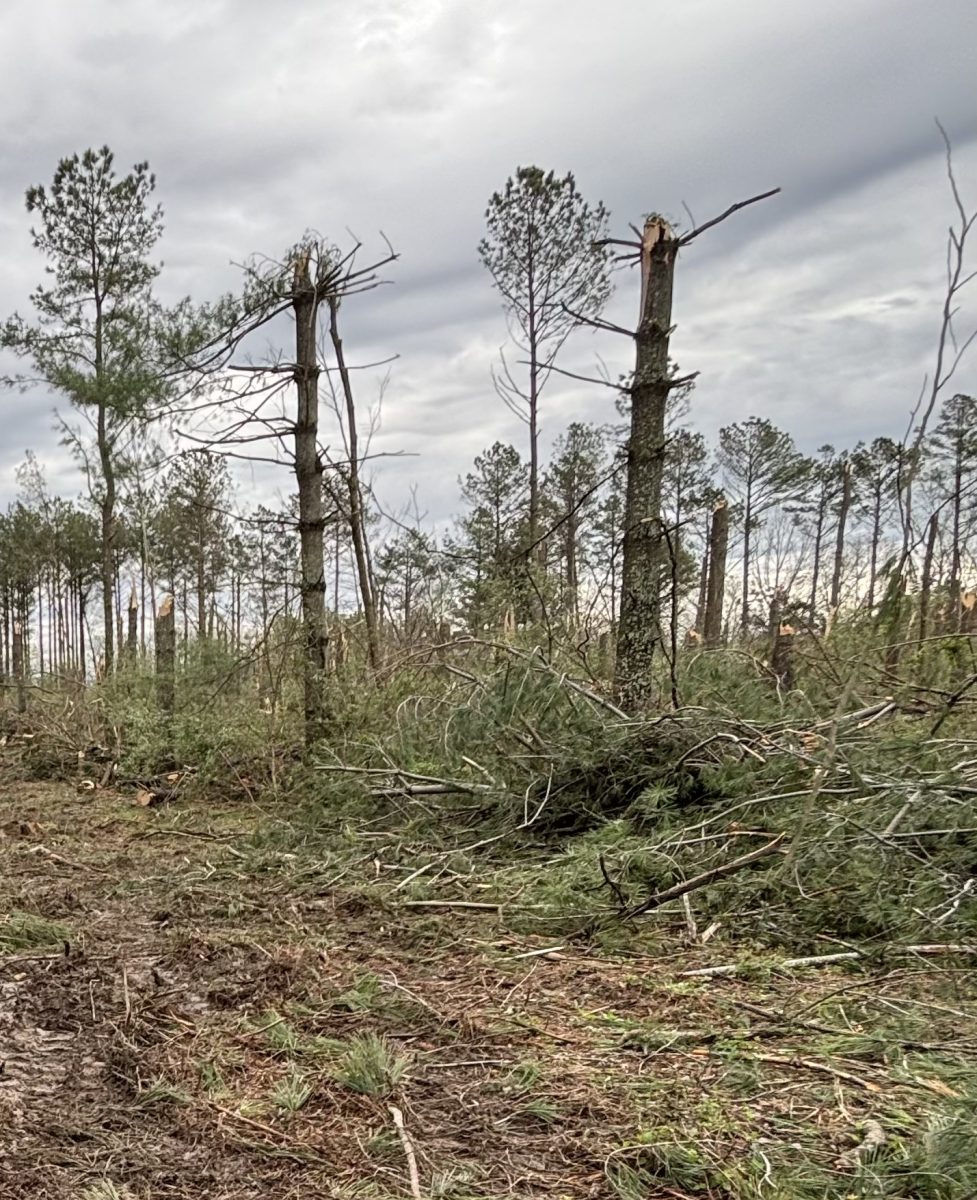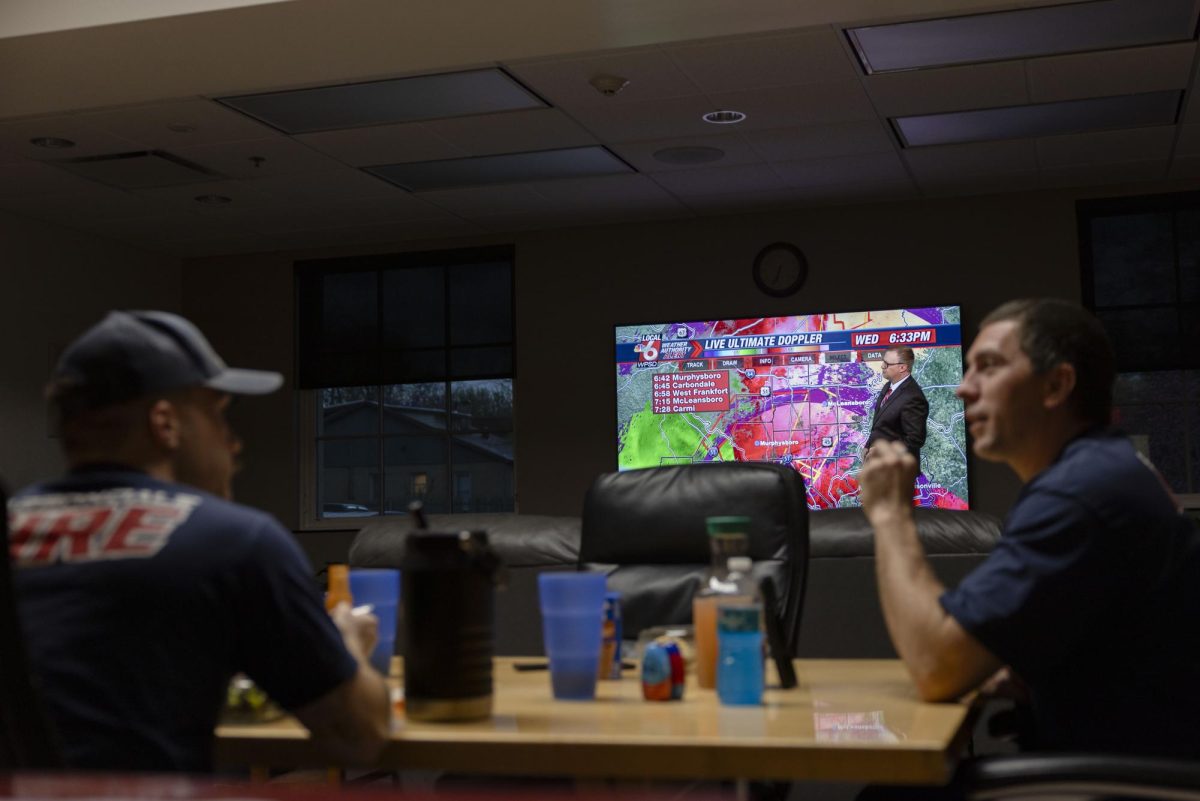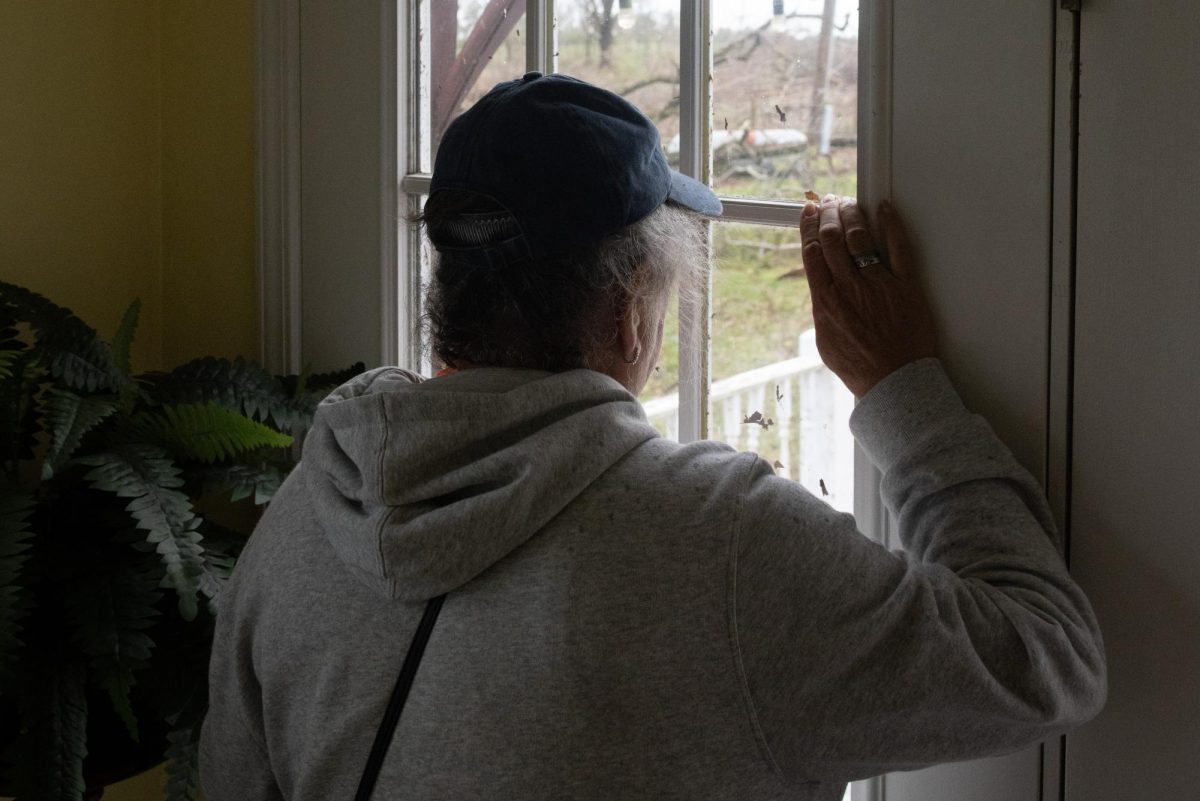Student discussion turns to social injustice
April 29, 2015
Amid the controversy regarding deaths by police officers across America, the Zeta Phi Beta sorority hosted “Still I Rise,” a discussion on women’s roles in social injustice Monday night.
Stories shared by audience members often strayed from the event’s original theme of women’s roles in social change but Lolita Mack, president of the graduate chapter of Zeta Phi Beta, said that was not a negative thing. Sharing personal stories and opinions gave the event another purpose aside from its original intent, she said.
The open discussion began with online videos depicting scenes of police officers firing on unarmed African-American males, including some who were already detained.
Advertisement
The two facilitators of the event, Chasity Jones, vice president of the undergraduate chapter of Zeta Phi Beta, and Aseedaw Deal, a lecturer in the Rehabilitation Institute at SIU, asked audience members to describe their gut reactions in two words.
Words like, “surprised” and “disbelief” were contradicted by others who described the scenes in the videos as, “same old, same old.” The event was scheduled several weeks before the death of Freddie Gray, a Baltimore man who died while in police custody on April 19.
“The frequency of the killings really highlights the need for this kind of discussion,” said Katrina James, adviser for Zeta Phi Beta. “Just how television exposed injustice in the south, social media is exposing the injustices happening to our African-American males.”
Comparing the Baltimore and Ferguson, Mo., riots to the peaceful protests that occurred during the Civil Rights Movement led by the Rev. Martin Luther King Jr. caused participants to raise the question: Is violence necessary?
Even though events in Baltimore and Ferguson started peacefully, looting and fires transpired after days of unrest.
“I never condone violence, however I understand how it got to this point,” said James, chief academic adviser for the College of Education. “I can speak from a position of privilege, but people who can’t express themselves through these types of discussions would be more probable to act through violence.”
During the discussion, many in the audience sided with the members of the Baltimore riots, saying if there were no riots, there would not be the same amount of media coverage. Others were not so quick to defend the rioters.
Advertisement*
“We need to stand with the peaceful protestors,” Deal said. “I believe the riots are counter-productive. It gives people a reason to say ‘you are who we thought you were.'”
While most of the 40 audience members were students, one faculty member made his voice heard.
“The people who say violence doesn’t solve anything don’t know American history,” the Rev. Joseph A. Brown said.
Brown, who teaches Africana studies at the university, said conflicts such as the American Revolution and Civil War are examples of U.S. citizens violence for what they believed in.
“Any time you get people talking about issues that matter to them, it’s successful,” Brown said. “All change has to begin somewhere, and I think any conversation of significance is very important.”
Evan Jones can be reached at ejones@dailyegyptian.com or @EvanJones_DE on Twitter.
Advertisement








